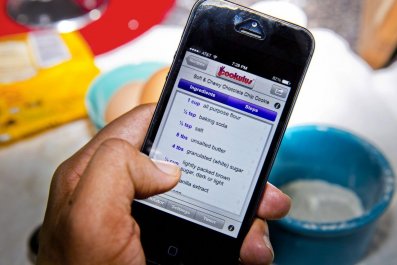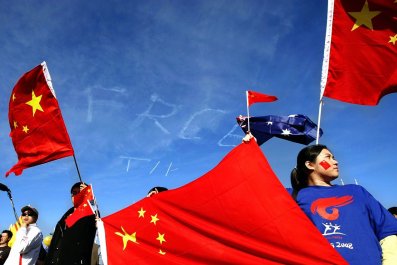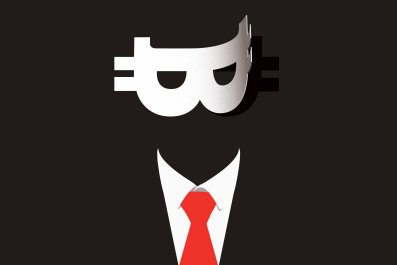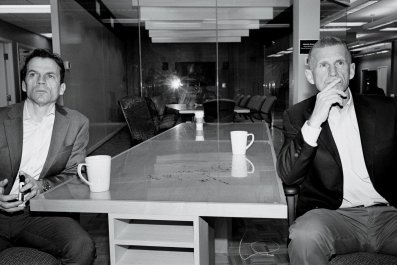It's hard to imagine how employees of LinkedIn get through each day bearing the awesome weight of the company's mission: "To create economic opportunity for every member of the global workforce."
Every single member! It's like pledging to end hunger or reverse global warming or eradicate Justin Bieber news stories. Very admirable, but, oy, such a big promise!
This is what technology companies do. If they start out building something that blows your nose for you, soon their mission is to cure the common cold.
Good companies have always evolved to take on greater challenges, but in eras past, the leap from micro to uber-macro took at least a couple of generations. Now technology moves so fast, that transition can happen over a lunch break at Panera.
Not long ago, I visited Airbnb's funky new headquarters in San Francisco to talk to Chief Executive Brian Chesky about the company's new vision. When he and his pals started the website in 2008, the idea was to help slacker travelers find a stranger's couch to crash on for a night. Last year, "it dawned on us: My God, we're a hospitality company!" Chesky told me. Now Airbnb is a "community-driven hospitality company" that intends to compete against the biggest hotel chains - a big leap from its origins.
Last week, I met Aaron Levie, CEO of red-hot company Box. In 2005, he and college pal Dylan Smith started Box in their dorm room to help people store and access digital stuff from anywhere - basically, an online locker. Now Box is a "content management" company "suited to the way people collaborate and work today." Box sells its services mostly to big corporations and sees itself as changing the way people do their jobs.
Tony Fadell started Nest because he was remodeling his house and thought he could make a better thermostat. By the time Google closed the deal this month to buy Nest for $3.2 billion, Fadell was saying his mission was to create the "conscious home." (Mine would bark, "Hey, you! Come on - clean me, already!")
A lot of successful entrepreneurs like to crow that they had their change-the-world Kumbaya missions in mind from the start. But that seems dubious. Most of those I've encountered started by building a product or service focused on a definable problem. YouTube's founders wanted a better way to share videos. Reed Hastings started Netflix because he got a $40 late fee for not returning Apollo 13 to a brick-and-mortar video store, and thought there had to be a better way to rent movies.
But the really good entrepreneurs wake up one day, as Chesky did, and realize their original premise caught fire because it touched on something profound. The ones who build big companies come to understand how a market or a social interaction can become better than it was before. Their focus turns from product (how to develop technology that does this or that) to mission. They point to a flag on a distant hill and say, that's where we're marching.
Of course, this also brings in more money at IPO time.
To be sure, many missions aren't fluff. They're nothing like the milquetoast mission statements that big corporations tend to cobble together by committee. (Corporate suits could get the same result faster by just using the online Mission Statement Generator.)
LinkedIn takes its new mission very seriously. When Reid Hoffman started the company, he saw a way to help professional people find each other. At the time, LinkedIn was the business Facebook. To grow and become stickier, the site developed into more of a professional hub, full of job listings, content and recommendations.
Now it has 277 million members, which means it also has an ocean of data about the work people do and how professionals move around the job market.
"We can now actually create economic opportunity," says Deep Nishar, the executive in charge of LinkedIn's products. The company can notice, for instance, an industry in need of certain skills, and direct people there who have those skills. It can help move people from regions of high unemployment to regions where they can find work. To LinkedIn and its ecosystem, this feels meaningful. As Nishar says: "We want to build a company that stands the test of time."
Time, though, is not always kind to missions. NASA got to the moon and then wondered what to do. In business, nothing can turn into a worn-out knock-knock joke faster than an out-of-date mission.
It didn't take long for Google's mission to get overtaken. Larry Page and Sergey Brin sounded so daring in the early-2000s when they said Google's mission was to "organize the world's information and make it universally accessible and useful." But that was before social networks exploded. "I think we probably missed more of the people part of that than we should have," Page now admits.
Then there's the big kahuna of obsolete tech company missions. We're talking Microsoft here. Back in the 1980s, at the dawn of personal computers, Bill Gates boldly declared the company's mission was to put "a computer on every desk and in every home." The goal seemed so audacious, Gates might as well have been telling the Cubs they could win the World Series.
But Microsoft succeeded at its mission so well that owning a desktop computer is now as exciting as owning a dishwasher. All the cool tech stuff has moved to mobile gadgets and apps and cloud computing and data insights. Microsoft needs to redefine itself, yet has not. So it drifts, mission-less, a ship with a broken compass.
It's a delicate balance. Every good mission has to seem a little nuts while still being within the realm of possibility. So a pledge to end Bieber news - that flag would never fly.





















